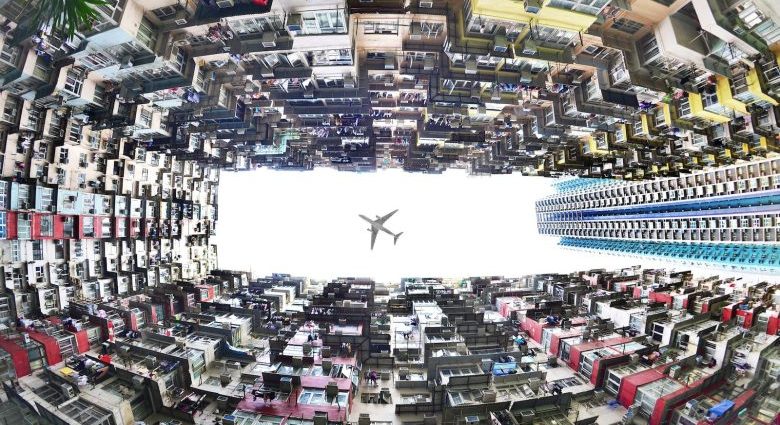Japan has been striving toward making strategic use of the United Nations since 1956 when it became a member, to enhance its national interests and also to have a privileged place in international society. Last month, Japanese Prime Minister Fumio Kishida visited New York to deliver a speech at the UN General Assembly (UNGA), which widely focused on the current issues surrounding the security environment.
Kishida focused on an attempt to renew cooperation to protect and strengthen human dignity across the world. He is a Hiroshima native who has made nuclear disarmament his “lifelong mission” and urged the heads of nuclear-weapon states to accelerate the transition to a nuclear-weapons-free world.
In order to achieve this, Japan is also committed to contributing 3 billion yen (US$20 million) to establish a new “Japan chair for a world without nuclear weapons” at overseas research institutes to overcome the contentious debate between academia and government on choosing deterrence or disarmament.
He said this is because it is paramount to transcend purely government efforts and engage in multi-layered efforts. Since Japan was the world’s first victim of nuclear attacks, nuclear disarmament is indeed one of the vital goals for the country. Therefore, Japan is willing to cooperate with the UN and other involved nations for discussions between nuclear and non-nuclear states.
Furthermore, Japan also hopes to normalize its ties with North Korea by thoroughly resolving remaining concerns, such as abductions, and nuclear and missile difficulties.
During the speech, Kishida reiterated the importance of the rule of law and Japan’s keen interest in protecting the rights of vulnerable countries and people to live in peace. Japan has strongly supported African representation in the UN Security Council and the expansion of both permanent and non-permanent membership in the council.
In line with this, he said Japan would make more concrete efforts to increase transparency of UNSC discussions, which also includes improving access to deliberations.
The Security Council’s organization has largely stayed constant since its founding, despite extensive attempts and outreach to nations in Asia, Africa and Oceania. Kishida said Japan has been working to restructure the UNSC for decades.
Japan has been actively contributing to the upkeep of peace and security as an accountable member of the international community, he added. As a result, Japan’s engagement in UN peacekeeping missions is now regarded as one of the country’s key areas of collaboration for global peace and security.
The United Nations Transition Assistance Group (UNTAG) in Namibia received 27 electoral observers from Japan in 1989, marking Tokyo’s first significant involvement in a UN peacekeeping mission. The Japanese government has committed to extending aid for UN peacekeeping by contributing US$9 million to support capacity-building for personnel deployed in African Union peace support operations.
Japan is still severely constrained in the types of missions it can participate in, even though its Self-Defense Forces can (and should) do so by collaborating more closely with the UN and other nations providing troops to UN peacekeeping operations.
Keeping in mind the adverse security environment surrounding Japan, such as China’s expansionist behavior and North Korea’s nuclear ambitions, Kishida reiterated Japan’s new plan for ensuring a free and open Indo-Pacific region wherein diverse nations would co-exist and prosper together.
He said Japan condemned Russia’s invasion of Ukraine as it was a clear violation of the rule of law, and also called for efforts to stop human-rights violations and nuclear threats. Russia has infringed on international law and for Japan, unilateral changes to the status quo by force are unacceptable in the international community.
During the speech, Kishida insisted that UN reform was necessary to create a society that respected human dignity. He also emphasized the significance of limiting the use of UNSC vetoes, suggesting that the council risked becoming dysfunctional as a result of permanent members Russia and China exercising their veto authority.
Climate, health issues
Kishida said Japan is keen on supporting disaster risk reduction for countries that are vulnerable to climate change, which also includes island states. Japan will also seek to reduce potential effects from rising sea levels and extreme weather events.
Moreover, Japan will pay $7.5 billion from 2022 to 2025 in accordance with governmental and private-sector pledges made by the Group of Seven to attain universal health coverage and improve prevention, readiness, and response to health crises. In order to guarantee fair access to medical countermeasures for medical emergencies, Japan will continue to collaborate with developing nations.
Regarding new technological challenges, he said, it’s important to strike a balance between human dignity and the “progress of digitization.” Although everyone benefits from digital technology, privacy and human violations are also at risk.
Japan has started the Hiroshima AI Process on with the goal of developing more reliable artificial intelligence and creating a global digital ecosystem with norms that respect human dignity.
Kishida reminded the UNGA that the big powers are not the only ones for which the UN exists. Based on the idea that every member state has sovereign equality, the United Nations exists for the benefit of the whole international community. It exists to uphold the claims of all states, not only the noisy and powerful ones, but also the frequently silent but equally valid ones.
It is therefore vital, the prime minister said, for Japan to expand its role within the UN to be able to address pressing issues surrounding the Japanese environment and the international arena.

